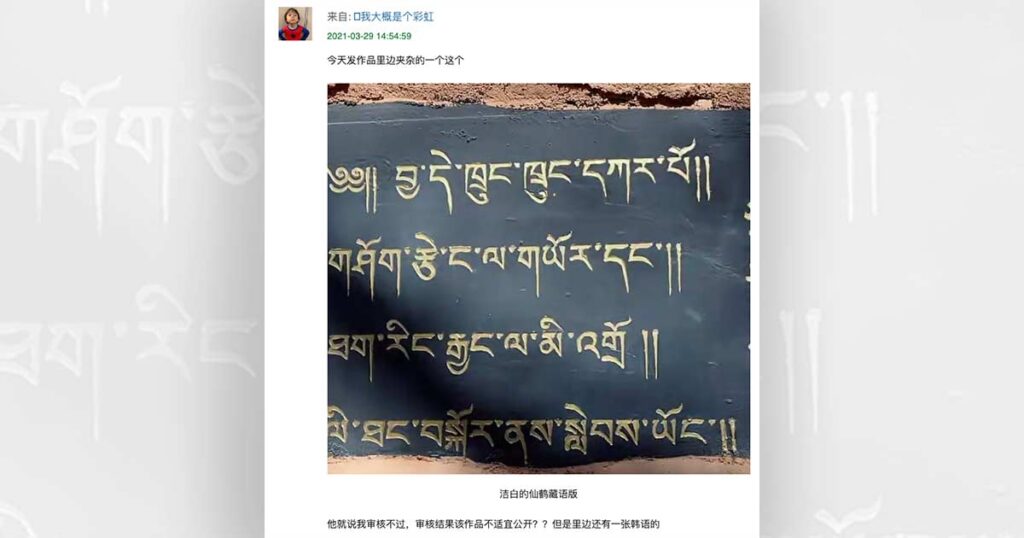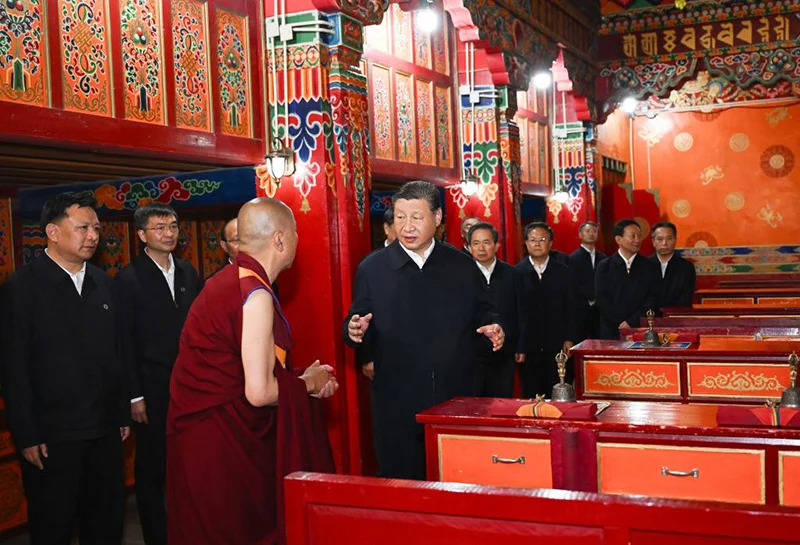-by Radio Free Asia
Bearing gifts ahead of the Tibetan New Year, Chinese authorities in Tibetan-populated parts of Sichuan province visited at least 35 Buddhist monasteries, and urged eminent monks to “deeply expose and denounce” the Dalai Lama and to safeguard the “unity of the motherland.”
The officials, led by Secretary Liu Yan of the Palyul (in Chinese, Baiyu) County Communist Party Committee, visited the monasteries in Kardze Tibetan Autonomous Prefecture on Jan. 11- Jan. 17, according to a statement by the United Front Work Department, which oversees the Chinese government’s domestic and external influence operations.
Tibetan New Year, known as Losar, this year falls on Feb. 10, the same day as China’s Lunar New Year, the biggest holiday of the year.
Liu extended Losar greetings and emphasized the need to “consciously enhance national awareness, legal awareness, and citizen awareness” and “deeply expose and denounce the divisive nature of the Dalai Lama and the Dalai clique.”
Beijing believes that the Tibetan spiritual leader, who lives in exile in Dharamsala, India, wants to split off the Tibet Autonomous Region and other Tibetan-populated areas in China’s Sichuan and Qinghai provinces from the rest of the country.
However, the Dalai Lama does not advocate for independence but rather a “Middle Way” that accepts Tibet’s status as a part of China and urges greater cultural and religious freedoms, including strengthened language rights that are guaranteed for ethnic minorities under China’s constitution.
The officials visited well-known monasteries in the area, including the Palyul Monastery, Yarchen Gar Monastery and Katog Monastery, which are associated with the Nyingma school of Vajrayana Buddhism.
Liu also led a separate meeting in Chengdu on Jan. 22 with representatives of various religious sects, where he mandated that Tibetan Buddhist leaders ensure that the monastic groups and their followers “firmly safeguard the unity of the motherland and national unity.”
He urged them to promote the “five identifications” that President Xi Jinping has repeatedly said is required of all Chinese citizens and minority groups. They include identifying with the motherland, the Chinese nation, the Chinese culture, the Chinese Communist Party and socialism with Chinese characteristics. Click here to read more.





